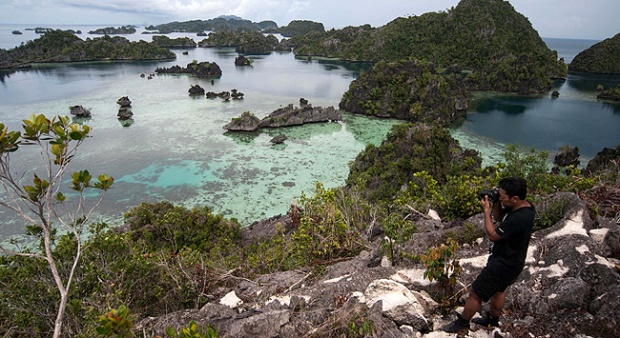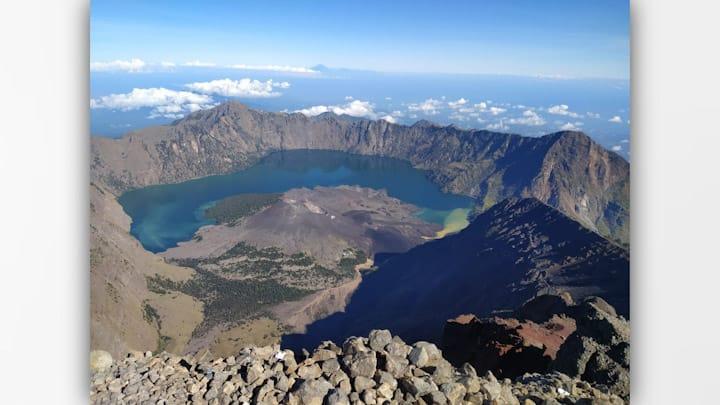TEMPO.CO, Jakarta - Mountain climbing nowadays is not just a physical activity, but also a part of lifestyle. The sound of the wind, sweeping fog on the slopes, and the orange sky behind the mountain are often reasons why many people leave the city to climb.
For climbers, mountains are a place for escapism, serenity, and seeking challenges. However, behind its charm, its harsh nature is never truly friendly to those who come unprepared.
For beginner climbers, the euphoria of conquering heights often overshadows that mountains are not just about reaching the peak. Many forget that steep terrain, extreme temperatures, and weary bodies can be dangerous if not handled properly. Small mistakes considered trivial can lead to unforeseen disasters.
Cited from the websites Eiger Adventure and The Trek, here are a series of common mistakes made by beginner climbers:
1. Not Doing Physical Exercise Before Climbing
Beginner climbers often underestimate the importance of physical exercise. However, steep mountain trails have thin oxygen and require heavy loads on the back can cause the body to collapse if not accustomed to them. Ideally, physical exercise should be done two to four weeks before the climb, such as jogging, going up and down stairs, or light weight training.
2. Not Bringing Standard Equipment
Many climbers still go up only with jackets and casual shoes. However, equipment such as raincoats, flashlights, whistles, and sleeping bags is a necessity. Proper climbing equipment is not about style, but a matter of safety. Do not get lost just because you don't bring a compass or your phone runs out of battery because you don't bring a power bank.
3. Bringing Too Many Items
Fear of unexpected conditions makes beginners tend to "bring everything." However, excessive loads only torture the back and make steps slow. The key is to bring only the necessary equipment. Make a list of items and do a trial before the D-day.
4. Ignoring Weather Forecast
A clear sky when departing does not guarantee that the conditions will remain friendly at high altitudes. Mountain weather can change in minutes. Many beginners get trapped in storms because they do not check the weather forecast or postpone the climb even though the forecast warns of heavy rain.
5. Not Bringing Sufficient Supplies
Food and water are body fuel. A common mistake for beginner climbers is to bring too little or not know how much is needed. At least bring two liters of water daily and high-energy snacks such as chocolate, nuts, or whole wheat bread. Do not rely too much on stalls or logistical posts along the trail because they may not be available.
In addition, climbers who are too tired usually immediately collapse without having time to cook or just fetch water. However, the body still needs intake even if hunger is not felt. Eat, even if only a little, to maintain stamina. Drink water every two hours, especially when climbing in hot weather.
6. Forcing Oneself to Reach the Peak
The euphoria of climbing often makes beginners ignore their bodies' condition. However, dizziness, nausea, and shortness of breath could be signs of altitude sickness. Forcing oneself to ascend when the body signals danger will increase the risk of accidents.
7. Underestimating Minor Injuries
Often, due to reluctance to bother the team, climbers cover up minor injuries, such as small abrasions that could turn into big wounds. Bring plaster, antiseptic, and spare socks. Do not wait for abrasions to appear; take precautions as soon as the feet feel strange. Shoes should also be "broken in" long before the climb.
8. Choosing the Wrong Shoes and Clothes
Many climbers wear thin sneakers or even sandals. The feet are the main asset for climbers. Sturdy, waterproof mountain shoes with a good grip are highly recommended. Similarly, clothing should avoid cotton that absorbs sweat. Use quick-drying materials and layer according to the temperature.
9. Leaving Trash
Mountains are not a dumping ground. One of the most heartbreaking mistakes is leaving food wrappers, plastic bottles, or other trash on the climbing trail. The principle of leave no trace is the most basic ethic, meaning everything brought up must be taken down. Including personal waste.
10. Not Obtaining Permits
Some climbing routes require official permits. Ignoring this procedure not only violates the law but also complicates the search process in the event of an incident. Legal climbers will be recorded, have communication lines with authorities, and receive safety briefings before ascending.
11. Disrespecting Nature and Fellow Climbers
Behaving arrogantly on the trail, playing loud music, or damaging plants are inappropriate behaviors. Mountains are not a party place. Respect the silence, do not litter, and give space to other climbers. The nature we visit does not belong to us alone.
12. Lacking Basic Navigation Knowledge
Maps, compasses, or GPS are not just for professional climbers. Beginners must also know the direction. Do not just rely on directions or the group ahead. Lack of navigation knowledge can lead to disaster if separated. Learn the route before climbing and understand the vulnerable points.
13. Departing Without Researching the Route
Beginner climbers often depart with minimal information. However, each mountain has different route landscapes, some are gentle and long, some are steep and short. Knowing the length of the route, the availability of water, rest points, and the risk of weather is crucial. Do not realize that the route passed is an extreme route when already halfway through.
Editor's Choice: Why Indonesian Volcano Rinjani Captivates Hikers Worldwide?
Click here to get the latest news updates from Tempo on Google News































:strip_icc():format(jpeg)/kly-media-production/medias/4779768/original/056174500_1711004488-hands-holding-knife-fork-alarm-clock-plate-blue-background.jpg)
:strip_icc():format(jpeg)/kly-media-production/medias/3508689/original/070798000_1626139545-20210713-Elon-Musk-SolarCity-5.jpg)
:strip_icc():format(jpeg)/kly-media-production/medias/4787912/original/016408900_1711630423-20240328-Penukaran_Uang-AFP_6.jpg)
:strip_icc():format(jpeg)/kly-media-production/medias/771429/original/006248600_1416892825-m2.jpg)
:strip_icc():format(jpeg)/kly-media-production/medias/1637589/original/042512800_1498996834-20170702-Senja-FF2.jpg)
:strip_icc():format(jpeg)/kly-media-production/medias/3055316/original/077027300_1582165451-BN-bsb-jame-asr-hassanil-m-2.jpg)
:strip_icc():format(jpeg)/kly-media-production/medias/4683631/original/073976400_1702380433-ilustrasi_melihat_nabi_dalam_mimpi.jpg)
:strip_icc():format(jpeg)/kly-media-production/medias/3022229/original/080968000_1579064783-HL.jpg)
:strip_icc():format(jpeg)/kly-media-production/medias/2393719/original/067759100_1540615529-pokemon-go01.jpg)


:strip_icc():format(jpeg)/kly-media-production/medias/5150517/original/099207500_1741076535-20250304-Banjir_Bekasi-AFP_3.jpg)
:strip_icc():format(jpeg)/kly-media-production/medias/1270659/original/036016300_1466509174-Banner.jpg)
:strip_icc():format(jpeg)/kly-media-production/medias/3430346/original/057356100_1618535827-coffee-cup-with-different-dried-fruits-nuts.jpg)
:strip_icc():format(jpeg):watermark(kly-media-production/assets/images/watermarks/liputan6/watermark-color-landscape-new.png,1100,20,0)/kly-media-production/medias/4843119/original/038879500_1716728099-20240526185221_2R8A5728.JPG)
:strip_icc():format(jpeg)/kly-media-production/medias/5147273/original/095534700_1740968364-cek_fakta_petugas_haji.jpg)
:strip_icc():format(jpeg)/kly-media-production/medias/5144760/original/037487100_1740642475-BUMN_2025.jpg)

:strip_icc():format(jpeg)/kly-media-production/medias/4804440/original/033841800_1713357769-Gus_Baha_dan_Habib_Syech2.jpg)
:strip_icc():format(jpeg)/kly-media-production/medias/5085399/original/084283500_1736394404-caption-buka-puasa-bersama.jpg)